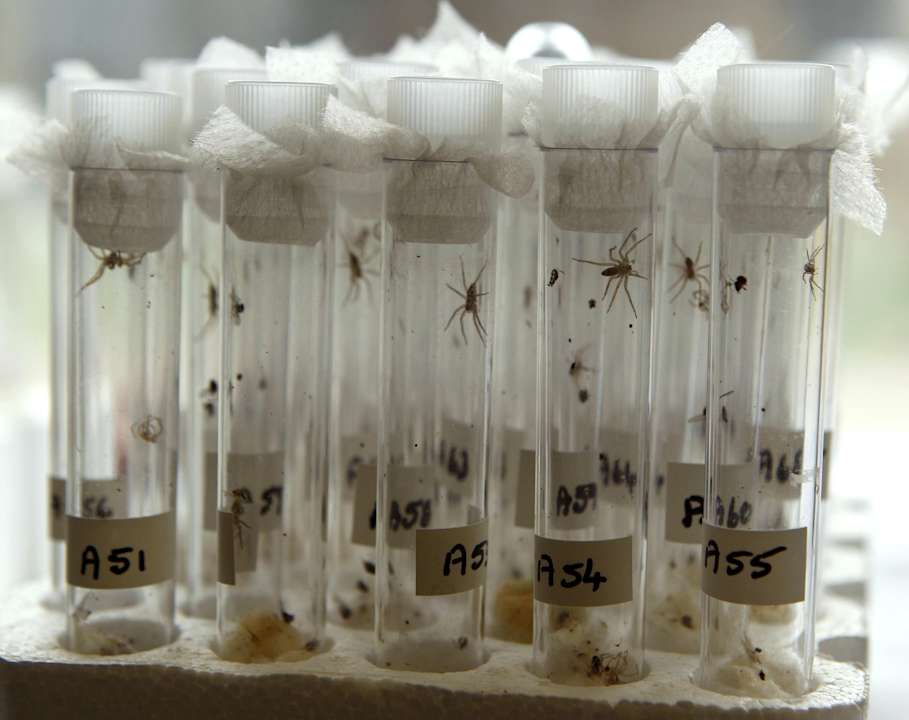The giant “fen raft” species were near extinction but conservationists say they are back on the rise
Giant spiders that can grow to the size of rats and live off fish are making a comeback in the UK, according to the RSPB.
For centuries the fen raft spider lurked in the UK’s wetlands but, after the industrial revolution led to many of its habitats being drained, the species almost went extinct in the 20th Century.
Now, after years of conversation work by the RSPB and Chester Zoo, the species is now back to thriving in the UK – which may not be welcomed by everyone.
After hitting a low of just three areas where they were known to exist in 2010 but there is now an estimated 10,000 breeding females across the UK.

The RSPB say the spider is set to have its best year on record in Norfolk and Suffolk, with almost half of the breeding females present there.
In 2010 a project was formed to breed and reintroduce the spiders to more suitable habitats.
In 2012 they were released at the RSPB-owned Cantley Marshes where they thrived and spread to the nearby surrounding areas.
They ranged as far as another RSPB-owned site called Strumpshaw Fen where they were first reported by a visitor who took a picture of one.
Tim Strudwick, the reserves manager for the RSPB in the mid-Yare valley in Norfolk said: “We just don’t know how far they are going to spread and that’s what’s exciting, seeing which bits of habitat they take over next.”
He added: “The fen raft spider is one of the UK’s rarest invertebrates and we are proud of the role our reserves and teams have played in its recovery.
“These spiders have an important role in maintaining the rich aquatic diversity found in the grazing ditches on our reserves. The females are impressive in size, but also beautiful – they are truly special to see.”
The large brown spider spins a web that can reach up to 30cm and it can grow to the size of a man’s hand.
They are the largest of the UK’s 660 known species of spider.
It eats anything it can catch from dragonflies to tiny aquatic animals like small fish and tadpoles. They can also run across water despite their size.
However, the public has been assured they are not venomous and prefer their marshy outdoor habitats to indoors.
Follow STV News on WhatsApp
Scan the QR code on your mobile device for all the latest news from around the country





























